Chapter 2 – Prerequisites for Your Journey
The best preparation for the future is a well-spent today.
– John Dewey
In this chapter, we continue to discuss how to be successful in life and talk about some steps you can take to identify your destination. Your destination is your purpose in life. This may not be easy and requires some thought about yourself. A good ‘Purpose in Life’ statement concerns what you love to do and how it can benefit others. But do not fear; it is not all about helping others to the exclusion of yourself. One of my clients was working in a technical field. When I asked her about her life’s dream, she wanted to start a school to help children who wouldn’t otherwise have an opportunity. Nothing stopped her other than she thought about it as far off and someday, but not today.
My Top 3 Successful Life Prerequisites
There are three things to know about success before identifying your life purpose. The following concepts are my own; you can go into depth on any of these subjects. Other authors will have a different perspective; this is what I have learned, and it’s just a nutshell.
- Frame of Mind
- Personality
- Self-image
Know Your Frame of Mind
What does Frame of Mind have to do with your purpose in life? For example, if you don’t think you are good enough to succeed, you will shoot too low and undermine your success. It is better to aim high and come in at a 60 than aim low and come in at a 30. If you dream of having a million dollars in the bank, why not ten or fifty million? Even a million seems out of reach if you don’t have much. However, talking to people who started with nothing and built up to something is not impossible – unless you THINK it is impossible. Then you might write it off, turn away, and never even give it a chance.

Our frame of mind dictates how we think about ourselves, others, and life in general. As such, it is the critical baseline of our decision-making in word and deed, our planning, outward appearance, speech, and how we think about others. It will also highly influence our thoughts about our purpose in life. There is a lot that can be said about how our frame of mind affects everything, and there are a lot of resources on the Internet for you to peruse if you are interested. For our purpose, I will only give a brief overview.
As you can surmise, the mind controls EVERYTHING about us, and this diagram does not even begin to touch upon all it does. Some of it is inherent at birth so that life can be sustained, and some of the mind’s functions result from imprinting during our early and future years. It is this imprinting that we are concerned about.
Imprinting can result in a good outlook or a not-so-good one. You probably know of people who wake up singing a song and seem able to dance through the day and others who are kind of down all the time. This is not an exercise to change your disposition. Instead, the goal is to know your personality and overcome its propensity when necessary. How do you overcome this? There is a three-step process:
- Admit you don’t know everything about yourself.
- Make an effort to understand how and why you respond as you do.
- Practice a different response.
Understand Your Personality
Personality may seem similar to the Frame of Mind, but it is not. Personality has to do with inborn traits along with imprinting and is more permanent, meaning it is harder to change. Frame of mind is not as much WHAT you think about the world around you but HOW you think about it. Your personality may be outgoing or introverted, with both strengths and weaknesses. In a meeting, an extrovert may run over others in a discussion, while an introvert may not contribute valuable insight. The frame of mind is what helps overcome inappropriate behavior. (This is my own conjecture based on observation, not research). Understanding your personality allows you to formulate a life purpose best suited to you and, therefore, with a greater probability of success. Many personality assessments can help you understand and work within your baseline personality.
Change Your Self-Image
Self-image is how we view ourselves internally and externally. You may have a positive or a negative self-image, and on a holistic level, this is related to many other concepts such as self-concept, self-esteem, and self-image, to name a few. A good overview of self-image can be found on the positivepsychology.com website, “What is Self-Image in Psychology? How Do We Improve it?” written by Courtney E. Ackerman, MA., reviewed by Jo Nash, Ph.D. To craft your Life’s Purpose Statement, I am only thinly referring to Self-image in maybe three categories. If nothing is wrong with your self-image and those closest around you agree, don’t fix what isn’t broken. If your self-image is too high or too low, consider if you want to work with a counselor and a coach to change it. It may seem strange to change a high self-image, but in this case, I refer to someone who thinks they are better than everyone else and has no humility. We want a realistic self-image, not over or undercooked, like an egg.

Self-image contributes to our actions and responses to our environment and others. The best success rate will be had by people having a better self-image. Therefore, it behooves you to know whether your self-image is good or poor and work to improve it. In this book, self-image refers not to your outward appearance but rather to what you think about your ability to succeed.
It is necessary to have a healthy self-image and love of self; you cannot share what you do not have. Jesus (in the Christian Bible) made an interesting statement when asked, “What is the greatest command?”
Jesus answered, “To love God and then love your neighbor as yourself.” Interestingly, Jesus added “…as yourself” to the end of that answer, indicating a precedence of behavior. You start by loving God, and one would hope that exercise of loving God would give you a healthy view and love of yourself, thus enabling you to behave lovingly to those around you.
As an aside, there may be objections to my bringing God and Jesus into this conversation. Use what works for you if you don’t believe in God or Jesus. I am not here to mold you into a particular belief, but at the same time, I won’t avoid essential wisdom just because someone may be offended by the word Christian, Bible, God, or Jesus; enough said.
Self-image is one of the three concepts to consider when identifying your purpose in life. In his book, “The 15 Invaluable Laws of Growth,” award-winning leadership author John Maxwell states,
“To discover your purpose, you need to grow in self-awareness.” This is the key to determining your life’s purpose and intentionally carrying out your goals daily.
John C. Maxwell
OVERVIEW
- Identify your Frame of Mind.
a. How do you respond to others in a disagreement?
b. Listening skills – do you listen thinking of your response or to understand?
c. How do you receive critical feedback?
d. Are you receptive to new ideas or resistant? - Identify your Personality.
a. Are you generally happy and up or sad and down?
b. Do you like to take charge and lead or follow?
c. Use a personality profile assessment.
d. Engage a professional to help you understand the results.
e. Accept what it is and learn to work within the constructs of your personality. - Identify your Self-Image.
a. Do you like yourself? Why or why not?
b. Do you generally like other people? Why or why not?
c. When there is an issue or problem, do you look for the silver lining or the devil?
d. Are you critical towards yourself or others?
e. Do you have addictive tendencies? List them out and the source.

Take the Next Step
In Your Success Journey
Call to talk about Your Success in Life
Complimentary Call (that means no cost)
Authored by H Mark Taylor – An Independent Certified Coach, Teacher, Trainer, and Speaker with Maxwell Leadership Certified Team
Copyright © 2024 H Mark Taylor. All rights reserved.


